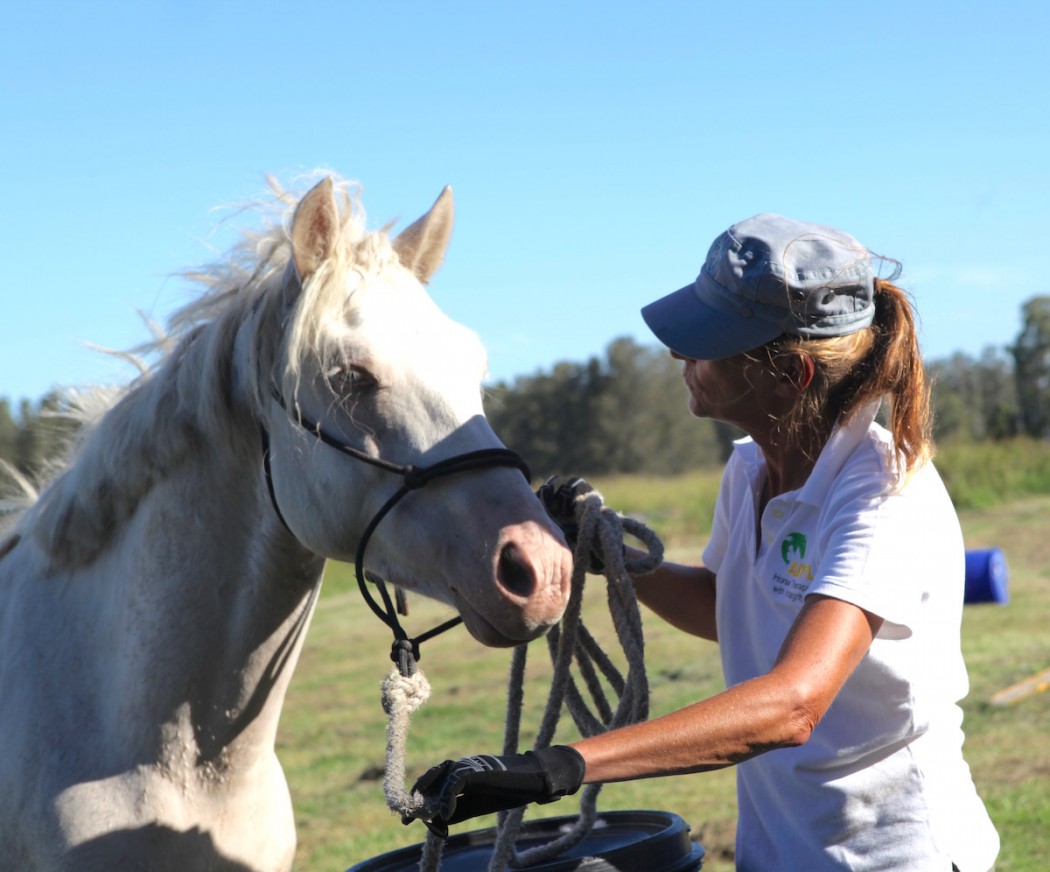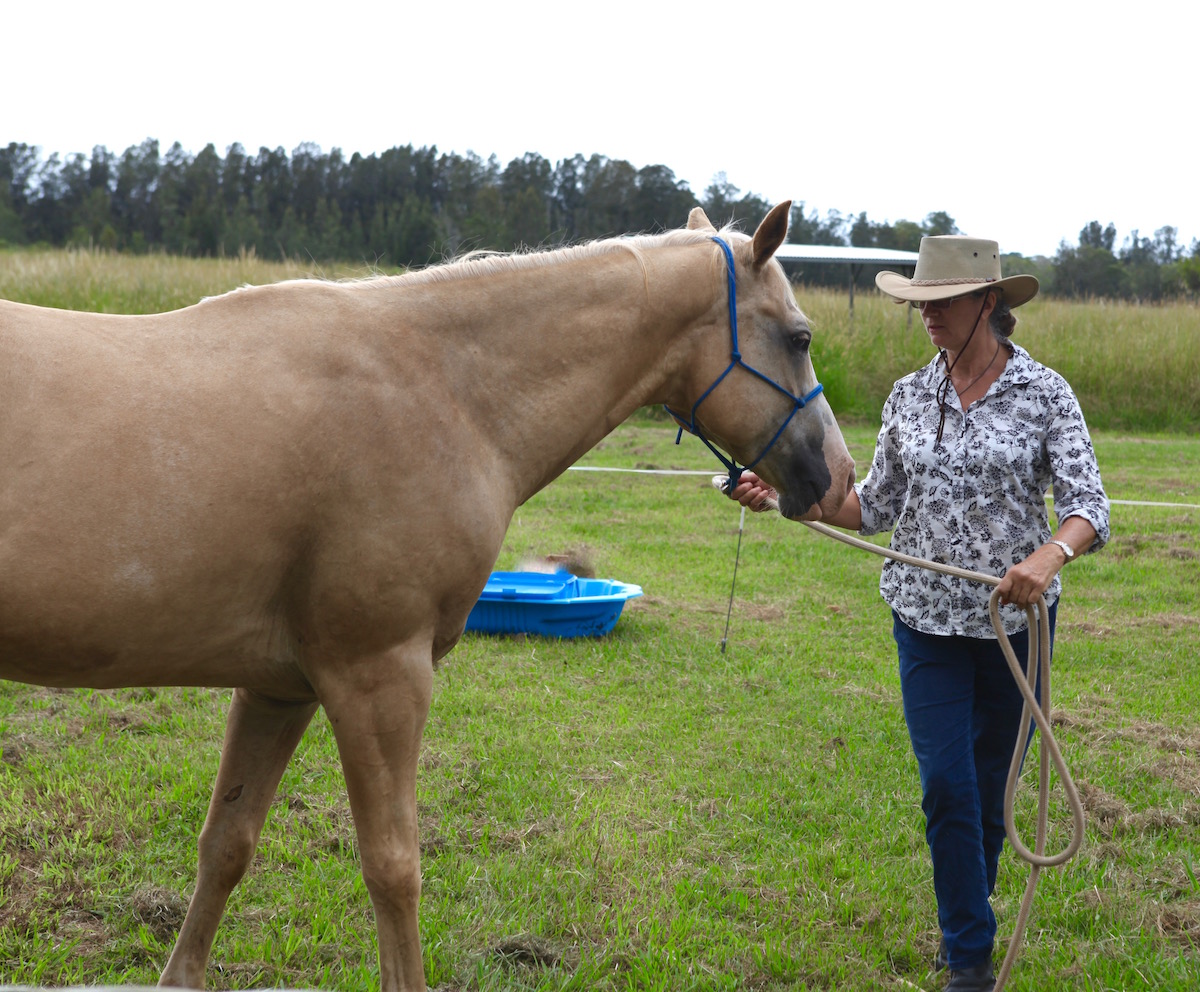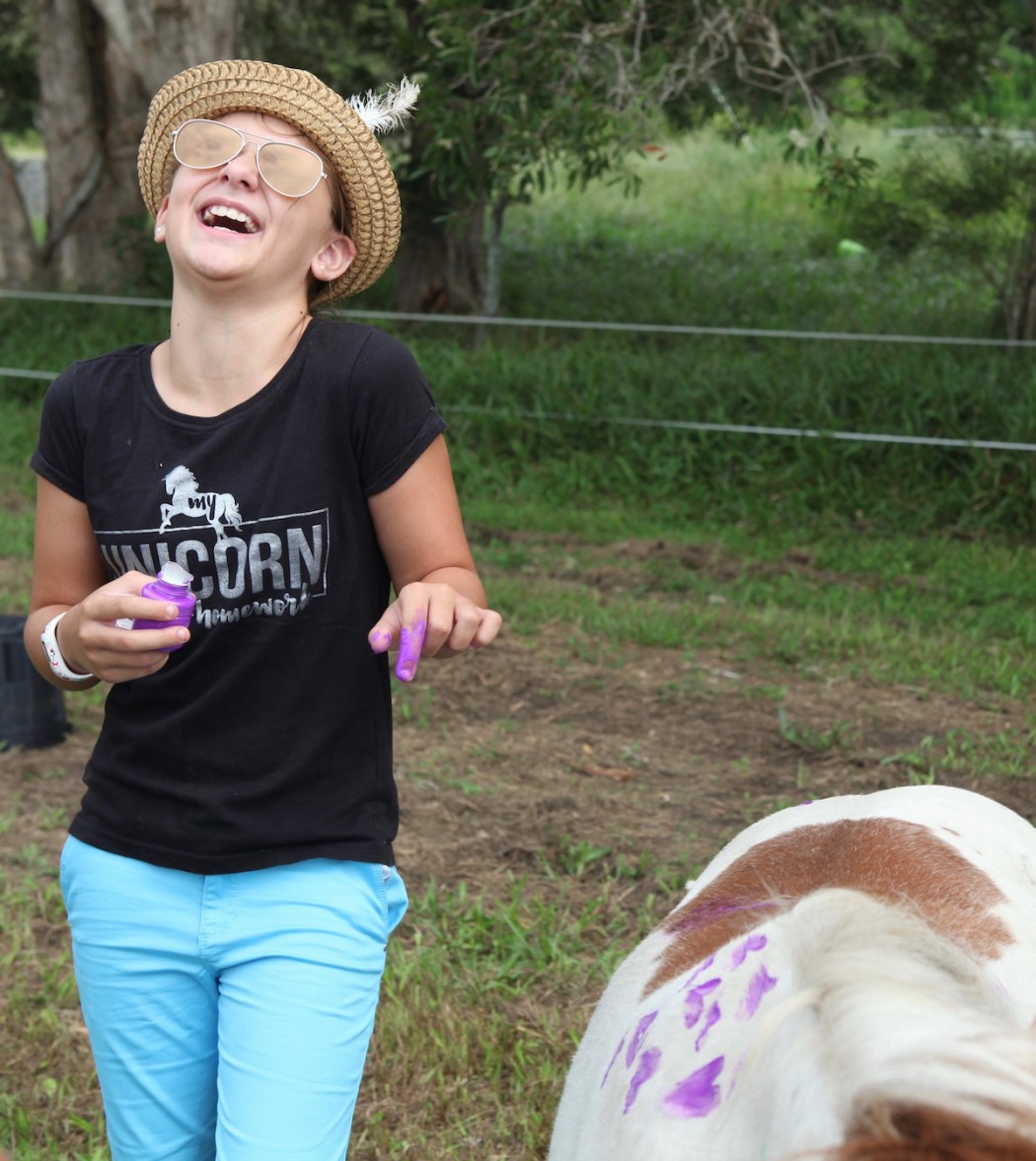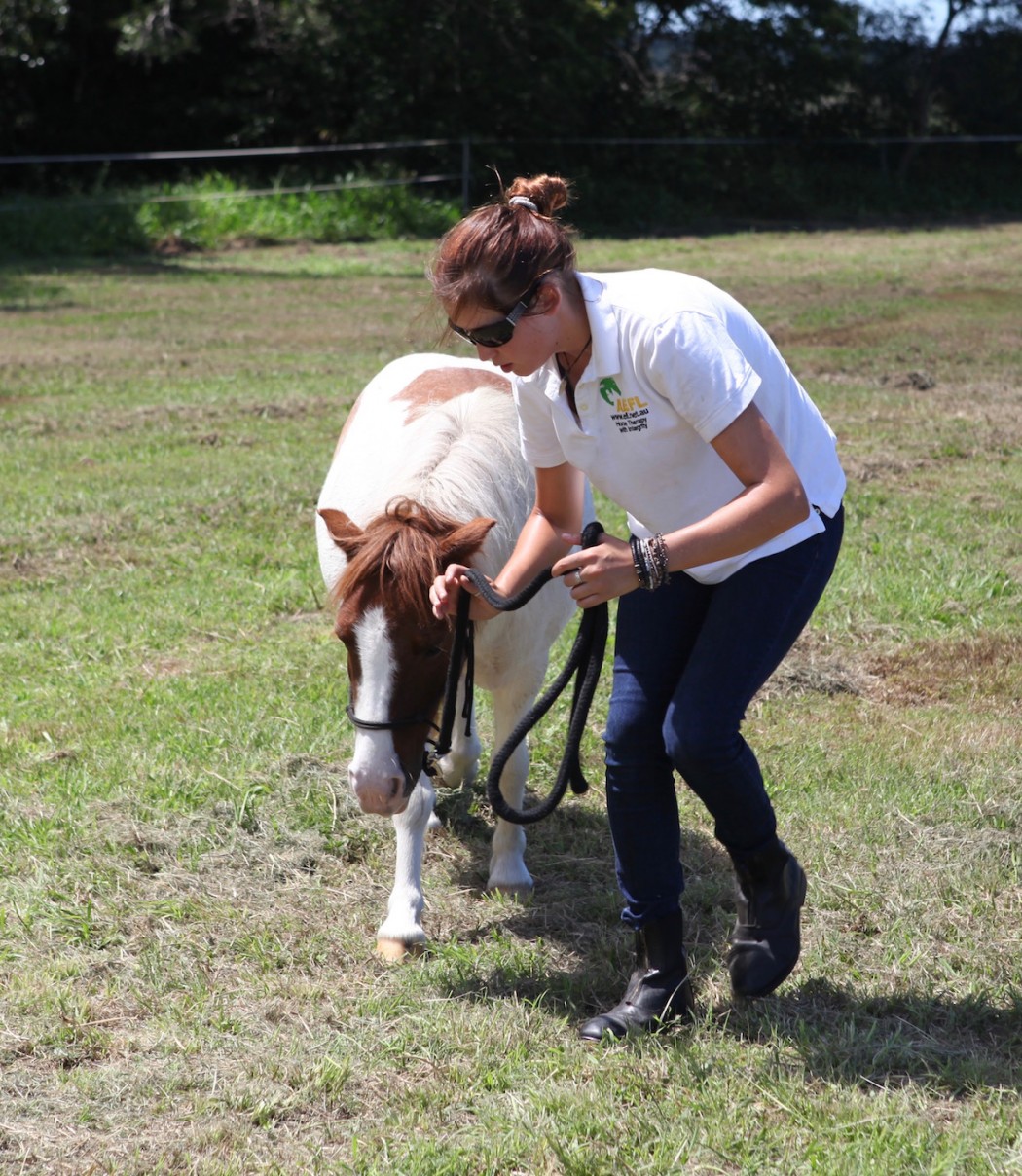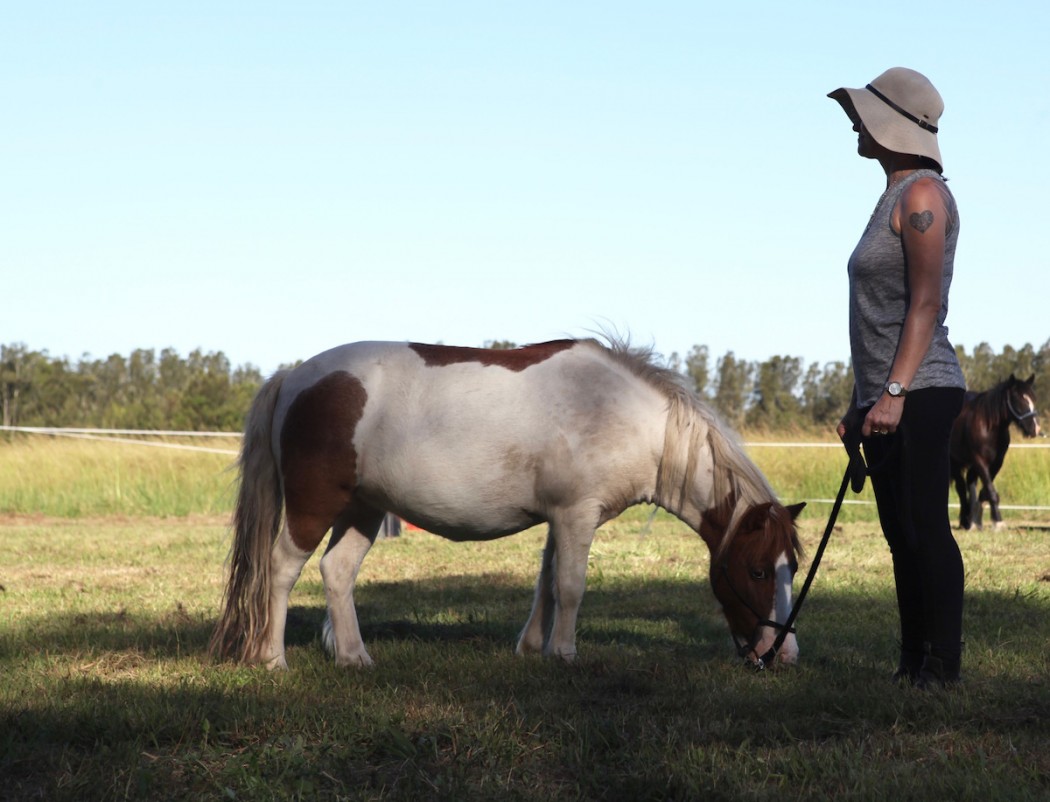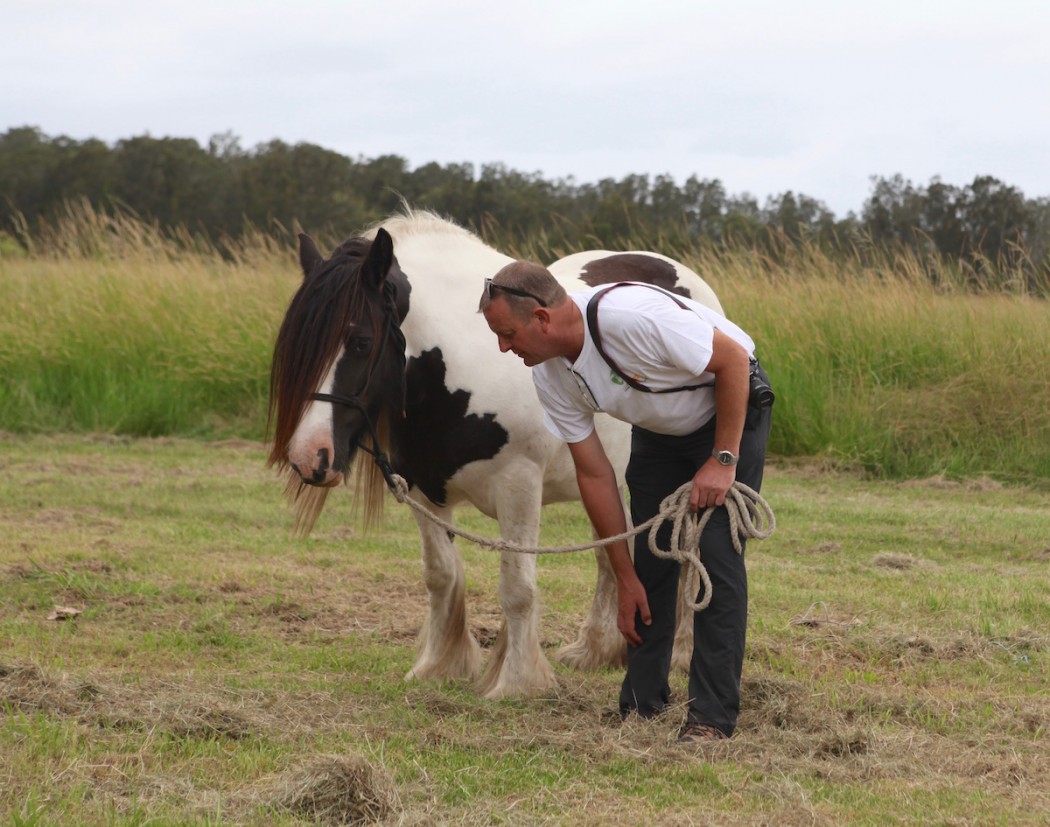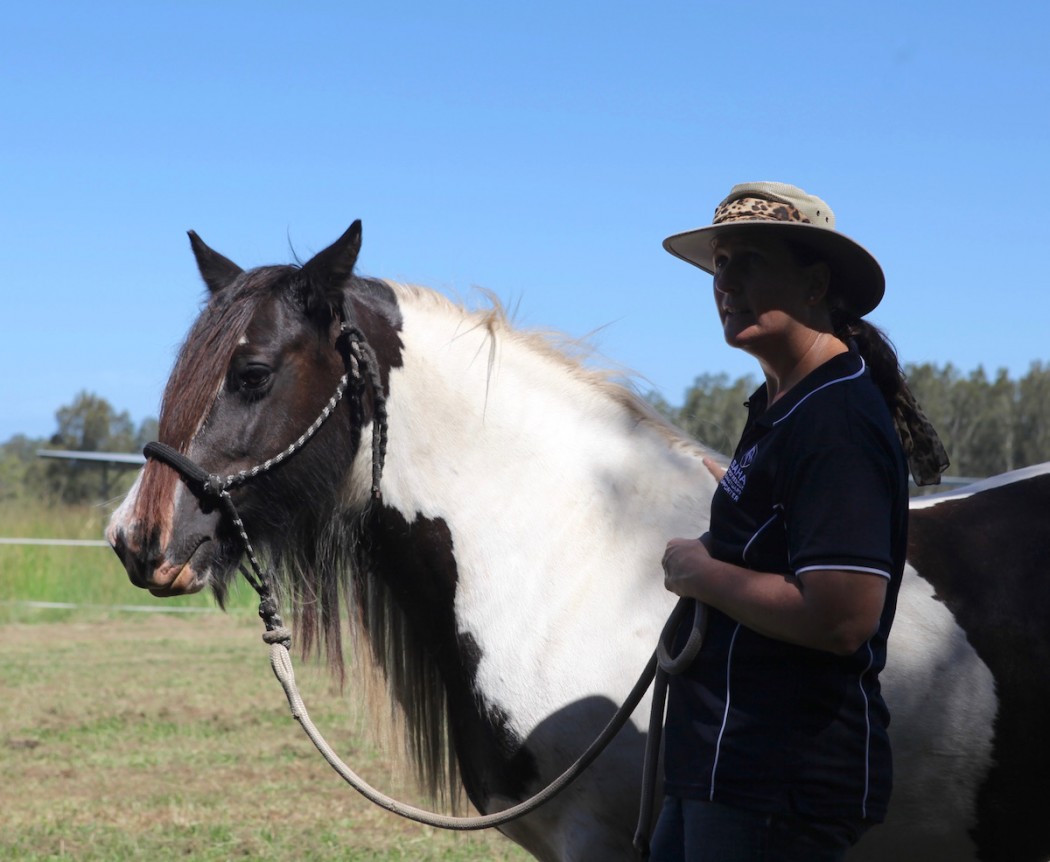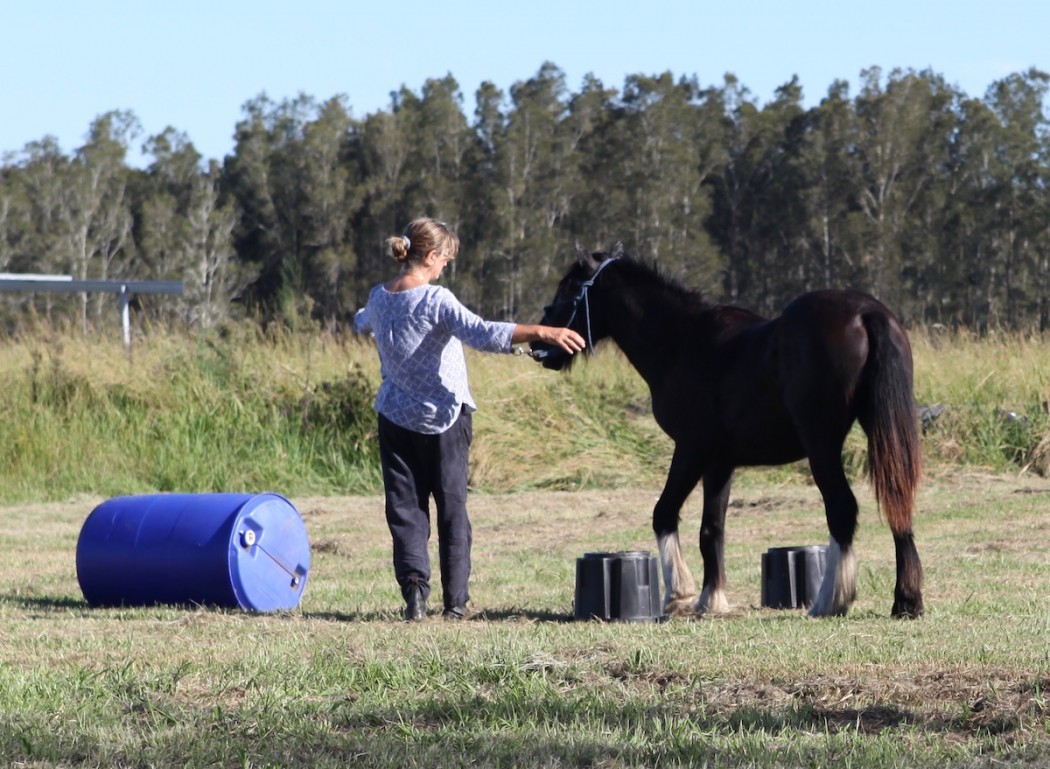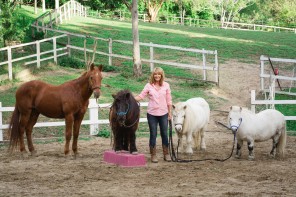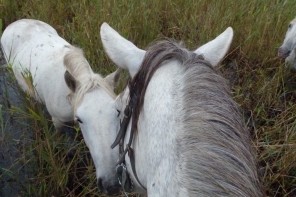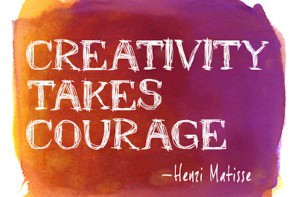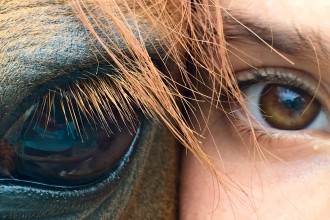More and more research is showing that close proximity to horses can change our brain wave patterns in a positive way. Candida Baker recently plunged into the world of Equine Facilitated Learning and found it was a therapeutic learning process for everybody involved.
I was only five years old when I first noticed that horses made me happy. My best friend, Sally, a couple of years older than me, had a perfect first pony, a grey Welsh Cob called Lucy, as safe, sound and sane as they come, and Sally was kind enough to let me spend hours with them both, grooming, or walking beside them, or even riding, or doubling together.
Looking back through the mists of time, there’s something that stands out about those early memories – and that’s the fact that the absolute best times we shared were not necessarily the riding ones. The times spent talking down by the river while Lucy munched contentedly beside us; the times when we would tuck Lucy up in her stable, out of the bad weather, and just hang in there with her, plaiting her mane or simply sometimes just leaning against her, inhaling her warm horsey smell. All three of us just about as content as it’s possible for children and pony to be.
Fast forward almost sixty years and 12,000 miles away from the country of my birth, and here I am, with a group of like-minded women having just taken part in an Equine Facilitated Learning Level 1 course – in order to become practitioners of this groundwork based course, in which there are three participants – the client, the horse and the facilitator.
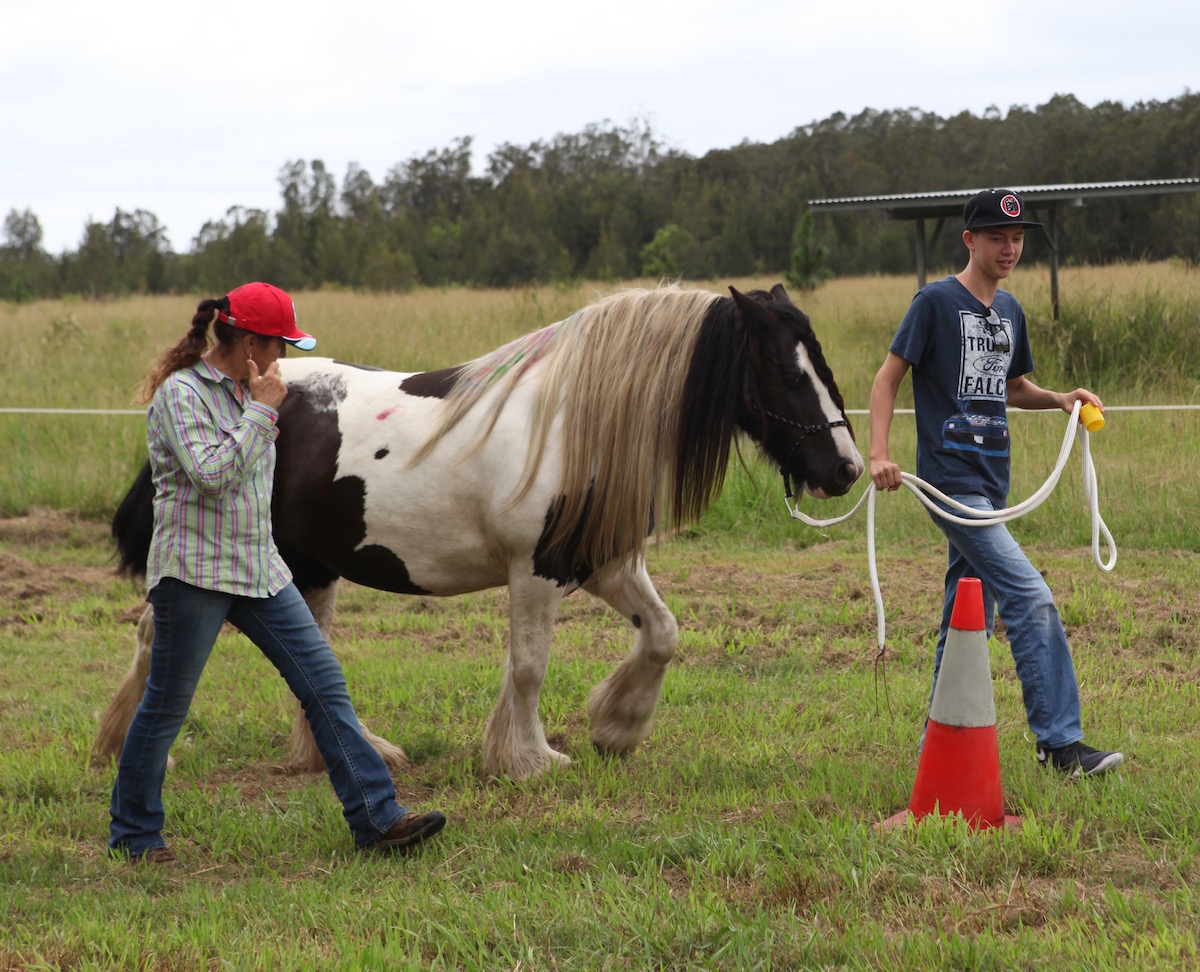
The client – 16-year-old Winter, the horse, Gypsy Cob Sweetcheeks and facilitator-in-training Sue Whatley.
After many years of horse rescue and rehabilitation, natural horsemanship and the teaching of my own methods to children, friends, family and volunteer helpers, I’m not new to the world of equine therapeutic modalities, but I decided to do this course for a specific reason – I wanted to have a qualification which will allow me to do something I’m passionate about – to set up horse groundwork sessions for our Save a Horse Australia rescue horses and for those who might benefit from time spent hanging out with horses, in which ‘magic’ is the key ingredient.
It was an intense four days! The clinic was conducted by Elaine Hughes, the guardian of EFL in Australia. Originally from the UK, but now based in Victoria, Elaine has had many decades of horse experience, and has studied with many of the ‘natural’ trainers, but it was a meeting with Frank Levinson, the founder of EFL, that prompted her interest in the program. When she and her family of four and two-legged friends moved to Australia, Elaine partnered with Sally Francis to create AEFL. Elaine teaches the clinic with her two off-siders, Louise, otherwise known as Irish, and her partner Dave.
What I witnessed as we moved through the four days into a deeper understanding of the horse and human bond, culminating in working with ‘real’ clients on the last day is that EFL seems to substantially deepen people’s understanding of their personal issues and feelings, and that some level of fundamental relaxation occurs.
But the careful – almost invisible – guidance of the facilitator also allows children and adults to experience, as Elaine says: “a huge surge in self-esteem and confidence when they realise they can create boundaries and direct a pony or horse to move in a particular way.”
Children who have stopped speaking; people with anxiety and depression; children and adults with physical or intellectual(or both) disabilities; people who are simply afraid of horses and want to learn not to be – all of these scenarios (and more) were presented to us over the four days, either in theory or practice with role play, or clients. It was an incredibly fulfilling experience for all of us to take our already existing horsemanship skills and our rapid immersion into EFL and to witness the ways in which we could help both ourselves, the client and the horse develop what I can only describe as an elasticity of brain and body. We learnt quickly to allow the space for the session to evolve into whatever is most fulfilling for the client and the horse!
The next step in becoming an EFL practitioner for us all is ten hours of sessions with clients, so watch this space!
Captions: Sometimes it’s fun to just ‘paint a pony’. Irish aka Louise, gets down to Nina’s level. Magnolia hanging out with Nina. Dave shares a moment with Sweet Cheeks, Cathy Binz my fellow SAHA trainee facilitator. The little yearling Maddie and I enjoy some bonding time.
For more information on EFL go to: https://www.efl.net.au/
AEFL is the Platinum Training Provider for IICT – International Institute for Complimentary Therapies.
Candida Baker is President of Save a Horse Australia and editor of HubVibes. This column first appeared in the March edition of HubVibes

